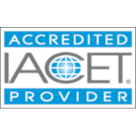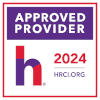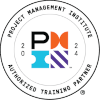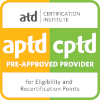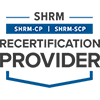Product Details
Topics Covered
- Quality management
- Plan-Do-Check-Act cycle
- Quality control vs. quality assurance
- SIPOC diagram
- Metrics
- Statistics
- Sampling
- Attribute and variable data
- Common cause variation vs. special cause variation
- Control limits
- Quality analysis
- Ishikawa's Seven Basic Quality Tools
- Non-numerical tools
- Quality management programs
- Lean systems
- Value stream mapping
- Lean House
- Six Sigma
- Reliability
Key Features
- Mobile-friendly
- Audio-enabled
- Badge and credit-awarding
- Real-world case studies
- Fully accessible
- Games & Flashcards
- Expert-supported
- Video content
Course Preview
Course Description
Learning Outcomes
- Describe principles that help guide quality management activities
- Use the Plan-Do-Check-Act cycle to coordinate work and implement change
- Explain the differences between quality control and quality assurance
- Create a SIPOC diagram to help visualize work as a process
- Explain the role that metrics and statistics play in measuring and controlling work processes
- Apply analysis and planning approaches to quality
- Explain how the Seven Basic Quality Tools are used to monitor and control quality processes
- Use the Seven Basic Quality Tools to process and sort non-numerical data
- Use the Seven Basic Quality Tools in combination to create powerful plans and solutions to quality problems
- Describe various quality management programs
- Employ quality management tools based on a brief case study
Notes
This course has an "Ask the Expert" feature, which submits your questions directly to an expert in the field you are studying. Questions are answered as quickly as possible and usually within 24 hours.
As an Accredited Provider, MindEdge offers for its learning events that comply with the Continuing Education and Training Standard.
Learners must achieve an average test score of at least 70% to meet the minimum successful completion requirement and qualify to receive credit. Learners will have three attempts at all graded assessments.
Project Management Institute, , the Registered Education Provider logo, Project Management Professional, , Project Management Body of Knowledge, , Agile Certified Practitioner, -, Risk Management Professional, -, the Talent Triangle, and the Talent Triangle logo are marks of the Project Management Institute, Inc.
Information in this course has been taken from A Guide to the Project Management Body of Knowledge, (® Guide) - Sixth Edition, Project Management Institute Inc., 2017.
The following list outlines the you will earn for completing this course, based on the certifications you have.
CAPM®/PMP®/PgMP® |
|---|
| Ways of Working PDUs: 2 |
| Power Skills PDUs: 2.5 |
| Business Acumen PDUs: 0.5 |
| TOTAL: 5 |
PfMP® |
|---|
| Ways of Working PDUs: 2 |
| Power Skills PDUs: 2.5 |
| Business Acumen PDUs: 0.5 |
| TOTAL: 5 |
PMI-ACP® |
|---|
| Ways of Working PDUs: 0 |
| Power Skills PDUs: 2.5 |
| Business Acumen PDUs: 0.5 |
| TOTAL: 3 |
PMI-PBA® |
|---|
| Ways of Working PDUs: 2 |
| Power Skills PDUs: 2.5 |
| Business Acumen PDUs: 0.5 |
| TOTAL: 5 |
PMI-RMP® |
|---|
| Ways of Working PDUs: 2 |
| Power Skills PDUs: 2.5 |
| Business Acumen PDUs: 0.5 |
| TOTAL: 5 |
PMI-SP® |
|---|
| Ways of Working PDUs: 0 |
| Power Skills PDUs: 2.5 |
| Business Acumen PDUs: 0.5 |
| TOTAL: 3 |
